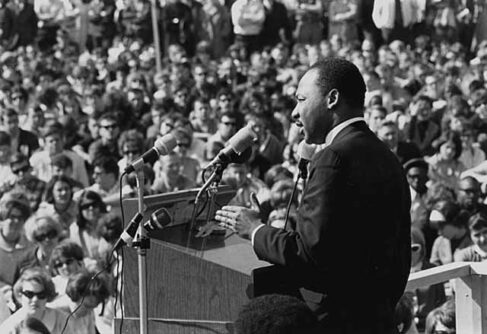“Mom, can I go on the field trip? It costs ten dollars,” our daughter asked while I was making dinner last week.
“Of course,” I said, without paying much attention. “Just remind me after dinner and I’ll sign the form and write a check.”
“Really, I can go?” she queried. “It’s ten dollars, and we’re poor—you said so!”
That got my attention.
And, she was right that I had said, in an exasperated moment not long ago, “We’re too poor to have money for that.” I was turning down some request on a day when I was feeling anxious about the fact that we might need a new roof and worried about other upcoming expenses.
When I said, “We’re too poor,” I wasn’t feeling grateful for the abundance in our lives. I was feeling anxious and worried, and I lost my perspective on what true poverty is.
What happened to me in that moment was a version of what apparently happened to Hillary Clinton when she said that she and her husband were “dead broke” upon leaving the White House.
Clinton was hardly “dead broke”—she had just received an $8 million advance for her memoir. Notably, when Clinton had a chance to explain her “dead broke” statement, she said that she “regretted” it but then immediately affirmed it:
It was accurate but we are so successful and we're so blessed by the success we've had and my husband has worked incredibly hard.
I haven’t any doubt that, on some level, Clinton felt that it was “accurate” that she and Bill Clinton were “dead broke” during that period: they were buying homes in Westchester, New York and on Embassy Row in Washington, D.C. and needed backing from a friend to qualify for one of the mortgages. But the cash-flow problems of millionaires who are buying homes in some of the most expensive real estate markets in the country doesn’t qualify someone as “dead broke” in ordinary parlance.
I thought about both my feeling of “we’re too poor” and Clinton’s “dead broke” statement when I read the Chronicle of Philanthropy report that well-to-do households have decreased the portion of their income they devote to charity while less-well-off households are giving more of their income to charity. The Chronicle found that, during the 2006–12 period, households earning $200,000 or more decreased their charitable giving as a percentage of household income by 4.6 percent; meanwhile, the charitable contributions as a percentage of income by households earning less than $100,000 rose 4.5 percent.
This rise in charitable donations from under-$100,000 households wasn’t just at the high end of this range: lower-income households increased their charitable contributions as well—even though, according to the Census Bureau, median household income declined 8 percent between 2007 and 2013. The less-well-off, considered together, were earning less but giving more of what they have. Perhaps they could see clearly how devastating the recession has been for so many, and that, for so many Americans, the recession isn’t over yet. They were moved to charity by their feeling of abundance, their knowledge that others were worse off.
It’s heartening to read of the generosity of those who are themselves hardly wealthy. But what about the ignoble tightening of the purse strings by the more prosperous? I’m sure there are many of those who, while truly well-off, had an “I’m too poor” or “I’m dead broke” moment when they were asked to give. The recession’s effects have been so pervasive that they’ve scared even people who have comfortable financial circumstances. But it’s important to return to gratitude for abundance—and thence to charity.






